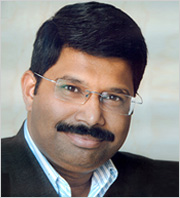Not one to mince words, Prof Apte spoke candidly on a variety of issues at the recently held AIMA Directors’ Conclave.
But first, a little background on the man himself. Prof Apte is an expert in the finance area. He holds a B.Tech degree from IIT, Bombay, a postgraduate diploma in management from IIM Calcutta and a Ph.D. in Economics from Columbia University, New York. He has published four major books in the areas of finance and economics, and is a consultant to leading corporates and financial institutions like Ernst & Young, Wipro, HDFC and State Bank of India.
MBAUniverse.com presents a few highlights from his speech:
“We can look at globalization of management education from two points of views: how Indian B-schools can contribute to the thinking process at Indian companies that are going global; and, what impact will globalization of management education have on Indian management schools. There is no doubt that leading international schools like Harvard, Stanford and Kellogg’s will enter the Indian management training market in the near future. How will we compete is the question.
Unlike what some speakers said earlier today, I strongly believe that role management education is certainly to impart basic functional knowledge on key disciplines like marketing, finance etc. I believe conceptual knowledge is a key deliverable from a management institute. I disagree with those who argue that management schools need not transfer such knowledge and conceptual frameworks -- and only focus on soft skills like leadership, and people management. Many of my own students who have reached the topmost level of global finance careers are there because of the domain skills they acquired at IIM Bangalore. The corporate world is better equipped to provide experiential learning; B-schools should focus on transferring conceptual knowledge.
I don’t see any harm in benchmarking Indian management education with the best in the world. Wherever we can learn, we must. Would a medical school in India reinvent basic medicines and treatments when they start? The same applies for management education.
To compete with the best in the world, Indian schools will have to forge stronger ties with industry. Quality industry-academia participation is essential. We need active involvement from the industry, but unfortunately its difficult to come by. We at IIM B started an initiative whereby a senior industry professional would spend six months or more on our campus and engage in a research project with a faculty member. This initiative had to be abandoned because industry professionals weren’t able to spare enough time. Industry must come forward and collaborate more. At IIM B we do a comprehensive review of our program every three years -- and this keeps us up with current industry and market developments.
One issue that Indian B-schools -- especially IIMs -- face is the restriction on fee structures. Top quality business schools can become more competitive by becoming self reliant on financial matters. They should have the flexibility to charge market prices for their education. Of course, we must offer subsidy to the needy, but mass subsidization is counterproductive.
I hear a lot of talk on the fact that management institutes should focus on entrepreneurship. In my view management schools aren’t best equipped to nurture entrepreneurs. This may sound controversial but I don’t think we can make entrepreneurs. Of course, we can support entrepreneurs by helping them with business plan preparations, access to funding etc, but entrepreneurship is a bit like a genetic code. Look at the Gates and the Fords and you see what I mean.
Indian B-schools should hence focus on what they can be good at: transfer fundamental knowledge of concepts and frameworks relevant to industry needs.”



























